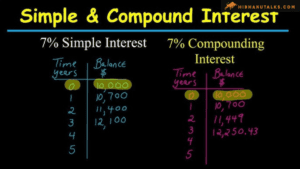
BHEL Stock Falls Over 3% After ₹402 Crore Worth of Shares Change Hands at ₹227 Apiece
Contents
BHEL stock price
On Wednesday, October 23, Bharat Heavy Electricals Ltd. (BHEL), a state-run company, saw its stock prices dip over 3%, driven by a significant stock transaction. As many as 1.8 crore shares, valued at ₹227 per share, changed hands in a large deal, the total worth of which was ₹402 crore. The buyers and sellers of this transaction remain undisclosed.


Market Reaction
Following this massive stock deal, BHEL’s stock price fell 3.14%, reaching ₹225.50 on the National Stock Exchange (NSE). While the shares briefly recovered, trading at ₹226.50 apiece by 2:20 pm, they were still down by 2.7% from the opening price. This marks a significant drop of over 31% from its recent peak of ₹335, indicating negative sentiment in the market.
Changes in Shareholding
Despite the decline in stock prices, there has been notable activity among investors. India’s mutual funds slightly increased their stake in BHEL, rising from 5.36% at the end of June to 5.82% by September. Foreign Portfolio Investors (FPIs) also raised their holdings, from 9.1% in June to 9.49% by September.
Conversely, Life Insurance Corporation of India (LIC), a significant institutional investor, reduced its stake from 7.33% in June to 6.72% in the September quarter.
Additionally, the number of small retail shareholders with a share capital of up to ₹2 lakh has grown, with around 19.6 lakh retail investors now holding BHEL shares, up from 18.5 lakh in the previous quarter. Retail investors’ collective stake in BHEL marginally increased from 10.72% in June to 10.87% by September.


Pin-to-Pin Explanation
- Stock Transaction
A significant event involving 1.8 crore BHEL shares exchanging hands at ₹227 each caused a decline in stock prices. The total value of the transaction was ₹402 crore, and the identities of the buyers and sellers remain unknown. - Stock Price Movement
After the transaction, BHEL’s stock price dropped by 3.14% and briefly recovered, but the overall sentiment stayed negative, leading to a 2.7% fall by mid-day trading. - Institutional Investor Activity
While mutual funds and Foreign Portfolio Investors (FPIs) increased their holdings, LIC reduced its stake in the company. - Retail Shareholders
The number of retail shareholders increased slightly, suggesting a gradual interest from small investors.
Advantages of the Situation
- Increased Market Liquidity: Large transactions like this add liquidity to the stock market, allowing easier buying and selling of shares.
- Opportunities for New Investors: The price drop may create buying opportunities for new investors who want to invest at lower prices.
- Potential for Strategic Shifts: Institutional investors’ actions, such as increasing or decreasing their stakes, can signal confidence or concern in the company’s future performance, allowing others to follow their lead.
Disadvantages of the Situation
- Stock Price Volatility: Large transactions often lead to fluctuations in stock prices, which can create uncertainty and fear among retail investors.
- Uncertainty in Shareholder Base: Since the buyers and sellers of the large deal are unknown, there is uncertainty about the intentions of major stakeholders.
- Loss of Investor Confidence: A significant price drop of over 31% from the recent high may cause concern among long-term investors regarding the company’s future prospects.


Conclusion
The fall in BHEL’s stock price following the large transaction reflects the volatility often seen after substantial deals. While institutional investors like mutual funds and FPIs increased their stakes, the reduction by LIC indicates mixed confidence in the company. The marginal increase in retail shareholders suggests interest from smaller investors, but the overall sentiment remains cautious.
BHEL’s stock will likely continue to experience fluctuations in the short term, with further clarity needed about the identities and intentions of the major buyers and sellers in the transaction.
FAQs
- Why did BHEL’s stock price fall?
The stock price dropped by over 3% after a large transaction of 1.8 crore shares worth ₹402 crore occurred. The sale created uncertainty in the market, leading to the price fall. - Who were the buyers and sellers of the large stock deal?
The identities of the buyers and sellers involved in the transaction are not publicly known. - How have institutional investors responded to BHEL?
Mutual funds and Foreign Portfolio Investors (FPIs) have increased their stakes in BHEL, while Life Insurance Corporation (LIC) reduced its holdings. - What impact does the price fall have on retail investors?
The fall in price may provide an opportunity for retail investors to buy shares at a lower price. However, volatility may also cause concern among existing retail shareholders. - What is the outlook for BHEL’s stock?
Given the price volatility and mixed institutional investor activity, the short-term outlook is uncertain. Long-term performance will depend on the company’s future operations and investor sentiment.
BHEL stock price
Olectra Greentech’s Profits Skyrocket: How the Electric Bus Boom is Driving Q2 FY25 Success





















1 comment